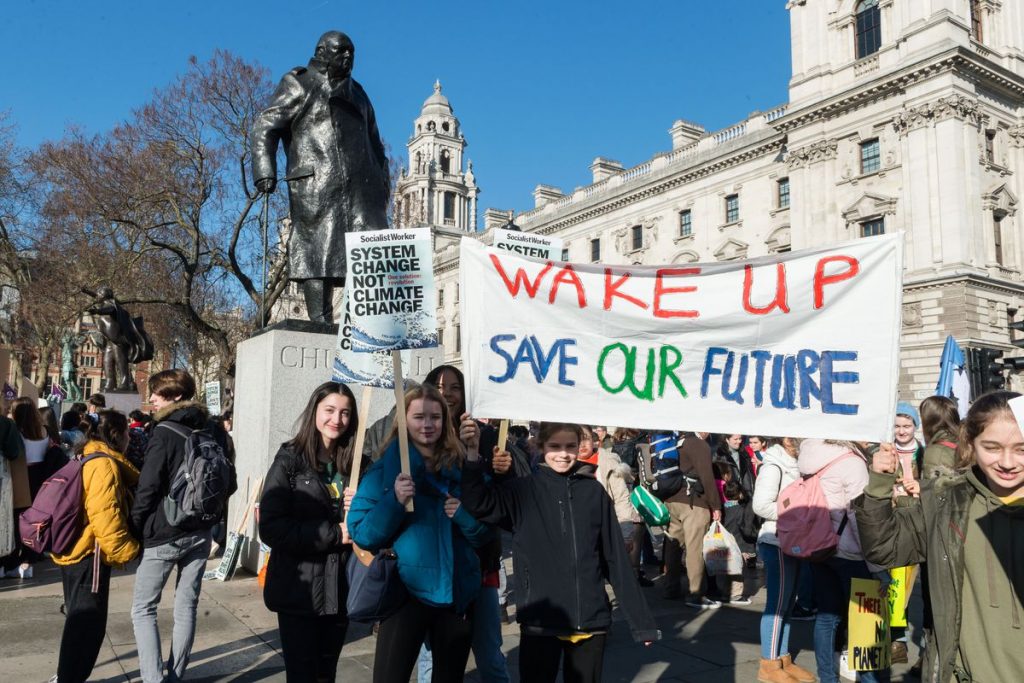Abridged article based on article by Gaby Hinsliff, columnist, The Guardian, April 19 2019.
At this critical time… Stores know (that many of) their young customers are eco-conscious, impressively fluent in the evils of plastic and diesel, where as past generations were oblivious. But they’re also human, still occasionally craving the disposable fashion they’ve always had. They want what most people secretly want, which is to enjoy the pleasures of a pre-climate-conscious age – foreign travel, strawberries out of season – but in ways sustainable enough to let us feel good about it…

To watch passing shoppers and tourists stop and film (climate protesters) on their camera phones is, however, to wonder how prepared we really are for the life of minimal consumption inherent in treating climate change as an emergency. The protesters have public sympathy for their broad aim in the bag. But that’s a very long way from securing public consent to the specifics…
In practice, that (would) indicate the kind of collective effort rarely seen outside wartime. It means goodbye to petrol cars, gas boilers and cookers – fine for those who can afford to replace whatever they’ve got now, impossible for the poor without significant subsidy and, hello to restrictions on flying. It implies eating significantly less meat and dairy, and no longer treating economic growth as the first priority, with all the possible consequences that entails for pay, tax revenues and public services. We might hope to create jobs in green industries but shed them in carbon-based ones but with no guarantee of the new, clean technologies basing themselves in those towns hardest hit by the loss of the old, polluting industries.

All of that might be necessary to stop global warming in the long run, but the difference is that doing it in six years, not 30, means it would have to happen at breakneck speed, with painfully little time for communities to adjust. Those who are prepared to accept sacrifices for themselves need to be honest about what they’re wishing on others, which is why alarm bells ring when Extinction Rebellion’s Gail Bradbrook says that “this is not the time to be realistic”. We’ve seen in the three years since the Brexit referendum what can happen when campaigners win an argument by refusing to be realistic about what their dream means for other people.
